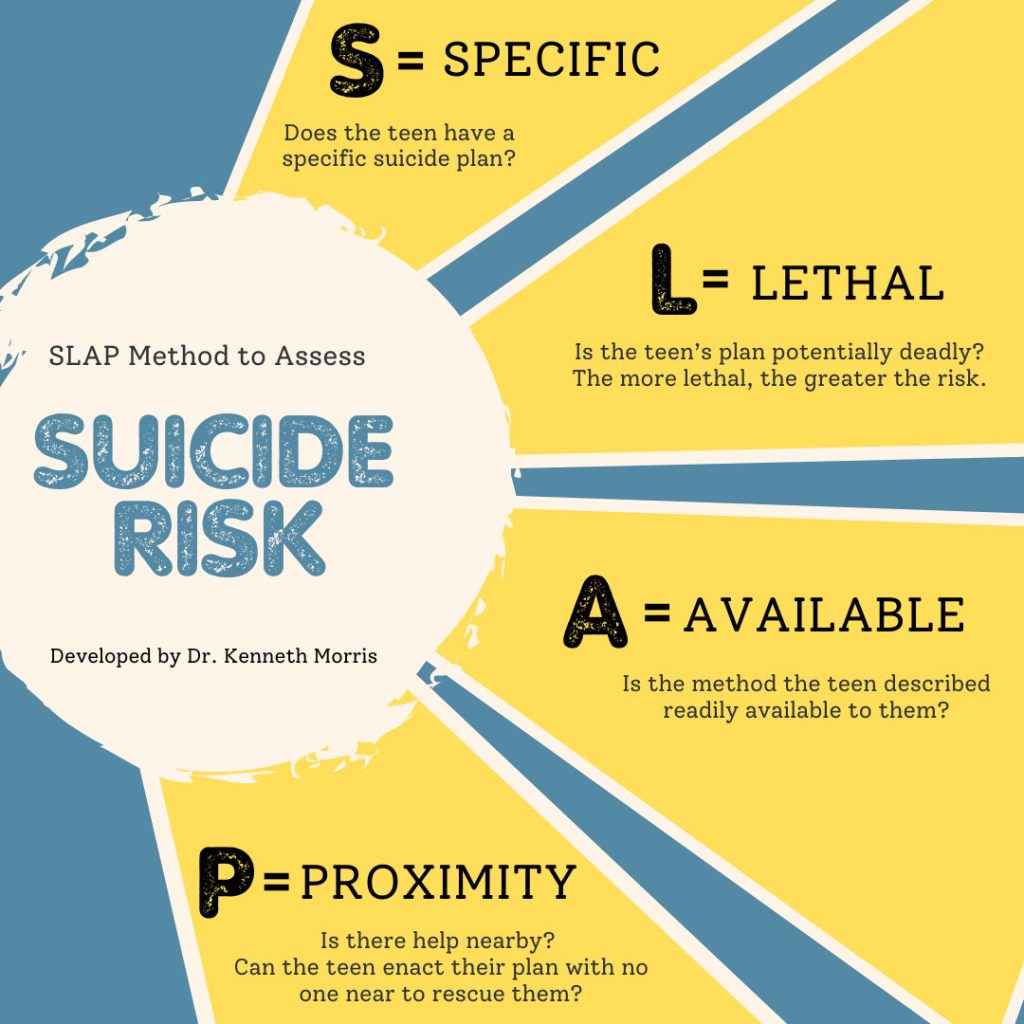The Saddest Generation: 5 Clues to Spot Depression and 5 Ways You Can Help
Is your teen sad?
Okay, we know – teens can be moody. During those pivotal years, emotions can rise and fall like the tides but without the comforting predictability of the ocean’s rhythms.
In our last blog post, we looked at the CDC’s alarming report revealing that a majority of teen girls, a significant number of guys, and many, many of those who identify with the LGBTQ+ crowd are struggling. According to the report, these kids are sad and hopeless, and their dark emotions are “persistent.” 1
How do you know if your teen’s face reflects the typical storm surge of adolescence or the deepening darkness of a full-on mental crisis? This is arguably the saddest generation, and we want to help you with five clues to spot depression2 and five ways you can help your hurting teen.
Disclaimer: We can’t diagnose depression, nor can you. All of the content in this blog is meant to provide food for thought only, not medical or psychological advice.
Clue #1 Mood & Mindset – Persistent Sadness
As we mentioned, teens have hormonal highs and lows, and moodiness is a natural part of that sometimes unpredictable season. However, if you notice that your teen’s mood has shifted to a persistent low – if you see what looks like a downward spiral – that lasts, it could be a clue worth noting.
Moms can often spot this shift in behavior – the scowl, downcast eyes, and often silence. A measure of this is expected in teens; however, look for a bad or sad mood that doesn’t seem to fade.3 Then, consider duration – if it goes on for more than a couple weeks, it’s worth looking into.
Clue #2 Increasing Isolation & School Problems
Look for signs of increasing isolation. This could include less friend time, less interest in family relationships – and a general retreat to a cell phone, another screen, or just shutting out the world with earbuds. Again, some alone time is normal. However, an increasing retreat from any and all relationships could point to a depressed child.
It can be easy to overlook a quiet teen for a while in our busyness with careers, multiple kids, and maybe even homeschooling. But don’t let them go unnoticed for too long if they begin to isolate themselves from human contact.
In school, have you noticed a sudden or gradual drop in grades? Other school indicators could be skipping, no longer caring about grades, angry outbursts, tardiness, and sullen disinterest. Also, be on the lookout for bullying, as it is more prevalent than ever.
Clue #3 Sleep, Hygiene & Weight Gain or Loss
If depression has taken hold of your daughter or son, you may notice physical clues – among the most prominent is sleep changes. Does your child want to sleep all the time, or do they have trouble sleeping at all?
Have they stopped caring about brushing their teeth or bathing? Depressed individuals often stop caring about these things (though not always). Just take note of any major switch in behavior.
You may also notice significant weight gain or loss. Dietary changes can be prompted by self-loathing feelings of depression. Do they no longer show interest in eating or binge on sugar and junk food? This sort of eating change can point to a teen who has stopped caring about now or the future.
Clue # 4 Rebellion and Self Harm
Have you discovered any substance abuse – alcohol or drugs? This can often be a sign of something deeper happening.
Other behavior to watch for is frustration and lashing out in anger. Becoming emotionally volatile is common among depressed teens. In contrast, others are so turned inward they seem sluggish, almost to the point of being catatonic.
Another common and often alarming discovery is when a teen becomes engaged in various levels of self-harm. It can take different forms and may or may not be a precursor to or indicator of suicidal thoughts. Most common is cutting, where the teen uses something to cut themselves, drawing blood. Often, they’ll hide their wounds on their legs or arms by wearing clothes that cover the injuries. It may seem like a mindless endeavor – but cutting is a method of coping with pain. It gives a measure of release, and until that relief can be found elsewhere, it’s a way to get by – and is addictive in nature.
Clue #5 Hopeless Words
Take note of the way your teen speaks. If your child consistently uses negative language and a hopeless tone it likely points to their outlook. The following are examples of this Eeyore-like tone:
Mom: “Honey, get on that homework before you do anything else.”
Teen: “It won’t do any good; I’m too stupid to pass that class anyway. What’s the point?”
Or
Mom: “You left your backpack on the floor again. Will you pick it up and take it to your room?”
Teen: “I can’t do anything to make you happy – I’m just a loser.”
Those sound extreme, but in the world of a severely depressed teen, those short lines speak to the thoughts that crowd their mind all day long. Thoughts of discouragement and hopelessness.
Dr. Jordan Peterson described the thought process of a depressed person as a downward progression of negativity. “In depressed people… every small event produces a cascade through their entire value system. They end up saying, ‘Well, that’s just another reason I should jump off a bridge.’ And they really see it that way.”
Peterson described how self-talk might go when a minor event like a bad test grade, in one with depression, quickly spirals downward:
“‘I didn’t do so well on the exam. I’m going to get a bad mark in the course. That’s going to screw up my ability to get my degree, so I’m never going to get into the field of my choice. It’s just another indication that I’m useless and that life isn’t worthwhile… I’m going to jump off a bridge.’ And if you’re really depressed, each of those things hits you with the certainty of truth.” 4
It sounds somewhat outlandish, but these thought patterns plague many with depression. They aren’t thinking straight and are often unequipped to change it independently.
Those are several categories to consider, but there could be more. As moms, we often sense things and recognize changes and unusual signs before anyone else. We must keep our eyes and heart open to our kids.
How You Can Help
If these made you wonder about your child, there are things you can do. At the outset, if you are concerned that depression may be plaguing your son or daughter, don’t go it alone. Seek help.
1. Find Professional Help
If you are concerned that your child may be dealing with depression, consider a conversation with your pediatrician or doctor as a starting point. Though sometimes challenging to diagnose, medical professionals are needed to help you decide how to proceed.
Counseling can be a lifesaving help to teens who feel hopeless. If you decide to seek talk therapy, give your teen some say, like allowing them to veto a specific counselor after several visits. It will help if your teen knows they are getting counseling but that you’ll work with them until you find a good fit. When my daughter went through her three years of severe depression – we worked through about five or six counselors until we found the right one. Now, even after recovery, she still occasionally sees that counselor when dealing with career or relational stress (young adult stuff!).
The ministry Focus on the Family has staff counselors who will provide (free of charge) a phone consultation with you – or with you and your teen. They can give suggestions and referral information. Focus also maintains the Christian Counselor’s Network, which lists therapists from coast to coast. A link is provided below.5
Medication is a very personal decision. We know that many have found it to be helpful, others not as much. Work with your doctor to discern if this will help your child.
2. Help them Reconnect
Without overwhelming your child, don’t let them spend all their time alone. Last week’s blog gave some ideas about ways to engage. Be sure to institute at least several family dinners each week. Allow your child to be quiet – don’t force them to pretend to be happy. Their time with the family has value – regardless of how it appears.
Privately encourage siblings and others to help with these connections and remind them that the struggling teen is “not herself” (or himself), so exercise patience and kindness.
If your teen has a close friend who is still somewhat in contact, try to arrange time for them together. Buy a pizza and let them hang out for an evening, maybe watching a movie or gaming. Interaction with others can be a break from a depressed teen’s tendency to isolate.
Be involved in church. Attend services. Volunteer together. Pray together – it can serve as a reminder that a God intentionally designed your child and cares about everything that concerns them!
3. Help Them Address Health Issues
It may make you feel like you’re dealing with a small child rather than a nearly-grown teen, but remind them to bathe or brush their teeth – whatever they are neglecting. You can be kind about it, showing understanding that the complicated feelings they’re living with, make it harder to get these things done. You can help them with this area as an act of compassion rather than judgment.
Please take note of their eating habits and help by creating healthy meals and having good snacks available. If you suspect an eating disorder may be present, speak to a health professional.
If your child is self-harming, you should seek help for them.6 In the meantime, know that it is a challenging addiction to break, but it can be done. Have open conversations with your teen – lovingly asking them how they are doing with this. Offer help and not condemnation. Our family went through this, and as my daughter struggled to end this habit, she sometimes gave me the thing she was using to cut with, and I’d get rid of it. Those moments happened several times along her road to recovery – in other words, she didn’t succeed at first- but eventually won her battle.
4. Help by Being Available
This is a big commitment. Of course, you’re available to your hurting teen, but if they are depressed, they need patience, care, and unwavering love. No matter how they push you away, they need you to care – and be there.
Late-night tears of a child who can’t reason correctly can make for exhausting, sometimes discouraging, and long, difficult conversations. Your presence and willingness to “go there” with your care and listening ear can help them know you won’t give up on them.
Being available in our family also meant hiding all the knives and medications in the house. Our child was cutting and dealing with suicidal ideation, so we had to make it as difficult for her to carry out her destructive plans. When I needed to chop vegetables, I went to a hidden bag where I kept all the kitchen knives. That’s how I cared for and loved my girl.
Spiritual Care: Consider that part of this could have a spiritual component. The Bible describes an enemy who “prowls around like a roaring lion looking for someone to devour.” 7 Jesus and His disciples actively ministered to those who were tormented. Pray and seek guidance from the Lord, and others who understand these issues. Pray for your child and enlist trusted friends (who won’t gossip) to help in this intercession. Pray, and don’t stop.
5. Help Yourself & the Rest of the Family
Caring for anyone who is depressed is a labor of love that takes a toll. A serious toll.
Moms are pushed to the brink, even while trying to care for others in the family. Dads are stressed and wondering what to do and how to help. Siblings can often feel neglected and misunderstood as the depression sucks the air out of the household.
Make time to take care of yourself, mama. You need to recognize when you need a breather. Nobody wins if you give out. Get your nails done, listen to an encouraging sermon, read a novel – whatever it takes.
A note about suicidal teens:
A sobering fact is that 5000+ teens commit suicide every year.8 If you think your child is at risk for suicide – you must seek help.9 You can call the National Suicide and Crisis Lifeline by dialing 988.
Here’s a method I used to gauge my child’s danger. This is not a substitute for seeking professional help, but it can help assess the urgency of your situation. It’s called the SLAP method10, and through conversation with your child, you can see where they land on this.
S = Specific. Does the teen have a plan that has some level of detail?
L = Lethal. Is the teen’s plan potentially deadly? The more lethal, the greater the risk.
A = Available. Is the method the teen described readily available to them?
P = Proximity. Is there help nearby, or could they enact their plan with no one near to rescue them?
Finally, trust your gut, mama. If you feel something’s wrong – you may be on to something. As moms, we know our children well. And we know when things aren’t right. You are equipped and able to fight for your child – so don’t give up.
We hope this information helps and that your children don’t suffer from any form of depression. If your family does face this challenge – know that there is no shame – and there is hope.
Note: This blog is for informational purposes only. Please consult a professional to diagnose or treat any medical or mental illness.
1 CDC Report: Youth Risk Behavior Survey
2 “The Difference Between Teen Moodiness and Depression”
4 Jordan Peterson: “How to Deal With Depression”
5 Focus on the Family Counseling Help
6 “Self-Injury/Cutting” Mayo Clinic
9 “Understanding Teen Depression and Suicide”
10 Suicide Assessment – SLAP Method
***




